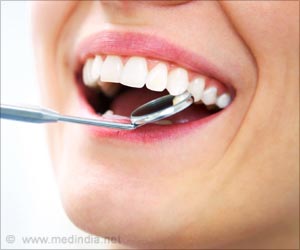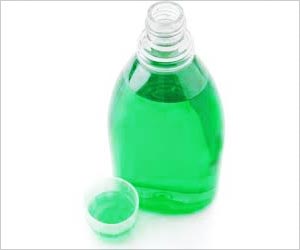Britain’s dental crisis is forcing people to be their own dentists.
A survey of British dental patients has found that some are resorting to pulling out their own teeth as the number of dentists participating in the National Health Service drops.Nearly half of dentists surveyed said they had stopped treating NHS patients. As a result, nearly 80 percent of Britons on private insurance reported they were pushed there because they couldn't find an NHS dentist. Only 15 percent of those privately insured said their choice was based on quality of treatment.
England has a two-tier dental care system with some dentists offering publicly subsidized treatment through the National Health Service and others performing more expensive private work. But more than three-quarters of those polled said they had been forced to pay for private treatment because they had been unable to find an NHS dentist. Almost a fifth said they had refused dental treatment because of the cost. In the process some are resorting to DIY dentistry.
Take Mark Cowley, a furniture restorer from Wisbech in Cambridgeshire, for example. After traversing long distances to get temporary procedures done, and having suffered the cracking of his tooth, he decided to take matters into his own hands. Using a pair of mole grips, plier-like tools, he pulled the offending tooth out. "I just got a bit desperate and this tooth was waggling. There's no pain in it now”, he says happily.
Yet Professor Liz Kay, dean of the Peninsula Dental School in Plymouth, has another opinion. He says that anybody who is able to pull out his own teeth probably has extremely advanced periodontitis, a collection of diseases that causes the loss of the bone supporting the teeth. "Normally a person would just not be able to move his or her own teeth”, he points out.
Robert Jagger, senior lecturer in restorative dentistry at Bristol Dental School, says cases of people with periodontitis removing their own teeth are not out of the common. "It can sound absolutely horrendous, but in the case of periodontitis, one of the things is that they become very, very loose. It has been reported very frequently over the years. You could get some pain but I don't know if there's a greater risk of infection [than in a dentist's surgery]." He adds that if a fragment of a broken tooth is left back, it can risk abscess and infection.
Advertisement
"There are more insidious dangers. Things may appear to be OK but the filling is still leaking,” Jagger adds.
Advertisement
Jenny Lees, managing director of Dentanurse, says her firm has doubled the sale of kits over the last five year. She suggests they are being used domestically as people cope with long waits for NHS dentists.
Sticking a crown back in place is safe and simple as long as people read the instructions. But they should do it themselves. "Legally you shouldn't get someone else to do it. If someone else does it for you they are breaking the law by practicing dentistry." "It's like making custard, as long as you read the instructions you are fine," she says.
Rose Matthews, 24, found herself left in the lurch and in need of the kits when her dentist stopped a procedure midway and told her it could not be completed on the NHS. Being unable to afford the fee, she endured an 18-month wait for NHS treatment. The hole in her drilled-out tooth was tackled using a kit once a month. "It was quite difficult and quite painful and because I couldn't do it properly the walls of the tooth were starting to break away." But despite the less than ideal solution, it was a lot better than plan A. "Before I discovered the kits I was using chewing gum”, she adds.
Sharon Grant, chair of the Commission for Patient and Public Involvement in Health, which commissioned the survey, says: "These findings indicate that the NHS dental system is letting many patients down very badly. "Where NHS dental services are available, people are happy with the quality of treatment provided but many find the NHS fee system confusing and expensive, with some patients taking out loans to pay for treatment or more worryingly taking matters into their own hands."
Source-Medindia
ANN/C







